From legendary out choreographer and High School Musical creator Kenny Ortega comes Netflix's Julie and the Phantoms, a delightful story of a teen who's lost her mom and her voice, and who finds hope with three teen ghosts from the '90s who have unfinished business in the corporeal world.
The series, complete with full-on original musical numbers and songs, is a light in the world when viewers can really use it. Not only is the show uplifting, but it also offers visibility for Latinx, Black, and queer people. Julie and the Phantoms stars up-and-comer Madison Reyes in the lead and focuses on her Latinx family, her relationship with her best friend, Flynn (Jada Marie), and with the ghosts, Luke (Charlie Gillespie), Reggie (Jeremy Shada), and Alex (Owen Joyner), whom she meets hanging out in her garage. The Phantoms, who died suddenly in the '90s from eating bad hot dogs the night their band Sunset Curve was set to play the Orpheum in Los Angeles, help find her voice again after her mother's death some months earlier. In turn, Julie offers them a second chance to make their dreams come true.
In an interview with The Advocate, Ortega, director of the High School Musical films, the Michael Jackson documentary This Is It, Newsies, and the Halloween classic Hocus Pocus, said he hopes Julie and the Phantoms will help pull viewers out of the dark times of 2020, if just for a little while.
"We all know that change needs to be about. In the spirit of change and growth of greater acceptance and openness, we approach Julie and the Phantoms," Ortega said. "Moving through grief, finding your path again, living life to its fullest, being fearless, and believing in yourself and your full potential, generosity. All of these things felt so right to me."
"We have an opportunity to do something that has heart, and hope, and an enlightened message," he said.
The show also features a love story between Alex and Booboo Stewart's Willie, a sweet skateboarding ghost who shows Alex the ropes of being a phantom as they fall for each other. Trouble for the ghosts sets in when Willie is manipulated by Cheyenne Jackson's charming ghost Caleb, who runs an eternal dance hall for the undead and the Hollywood bigwigs who want a piece of that world.
Regarding the inclusion of a gay love story, Ortega said he never could have imagined such a story back when he was coming out. He then shared that The Advocate was pivotal in his coming into his identity.
"You couldn't tell [LGBTQ+ stories] at all. When I was growing up there was no one out there," Ortega said. "There wasn't a face out there that said, 'It's OK, come out and play. There's nothing to be afraid of it.' It didn't exist."
"The Advocate was hugely important in my evolution as a human being," Ortega said.
He was at the Aquarius theater in L.A. for an extended run of Hair when "The Advocate came to us and said, 'We're looking for actors to help with the cause and to show some bravery and to come out.'"
"I hadn't come out to my parents, I hadn't come out to my friends. The cast members, we were all really open with each other. It was the closest and the most open I'd been with anyone was with the cast of Hair.
"I remember agreeing to do it, knowing that my career might be at risk, knowing that I might be hurting my chances to pursue my dreams coming out. It was a scary time. But I came out on the front page of the Advocate newspaper, and I believe it was 1972.
"To come from that history to be able to now, as a director, be telling these stories that aren't even about coming out -- that are about young people who are just comfortable with who they are, no matter what their sexual preference is. It's just glorious and so satisfying.
"It was my highest hope that this would reach the LGBTQ+ community, that my heart is in it. To feel the support from our community is huge."
Kenny Ortega and Madison Reyes
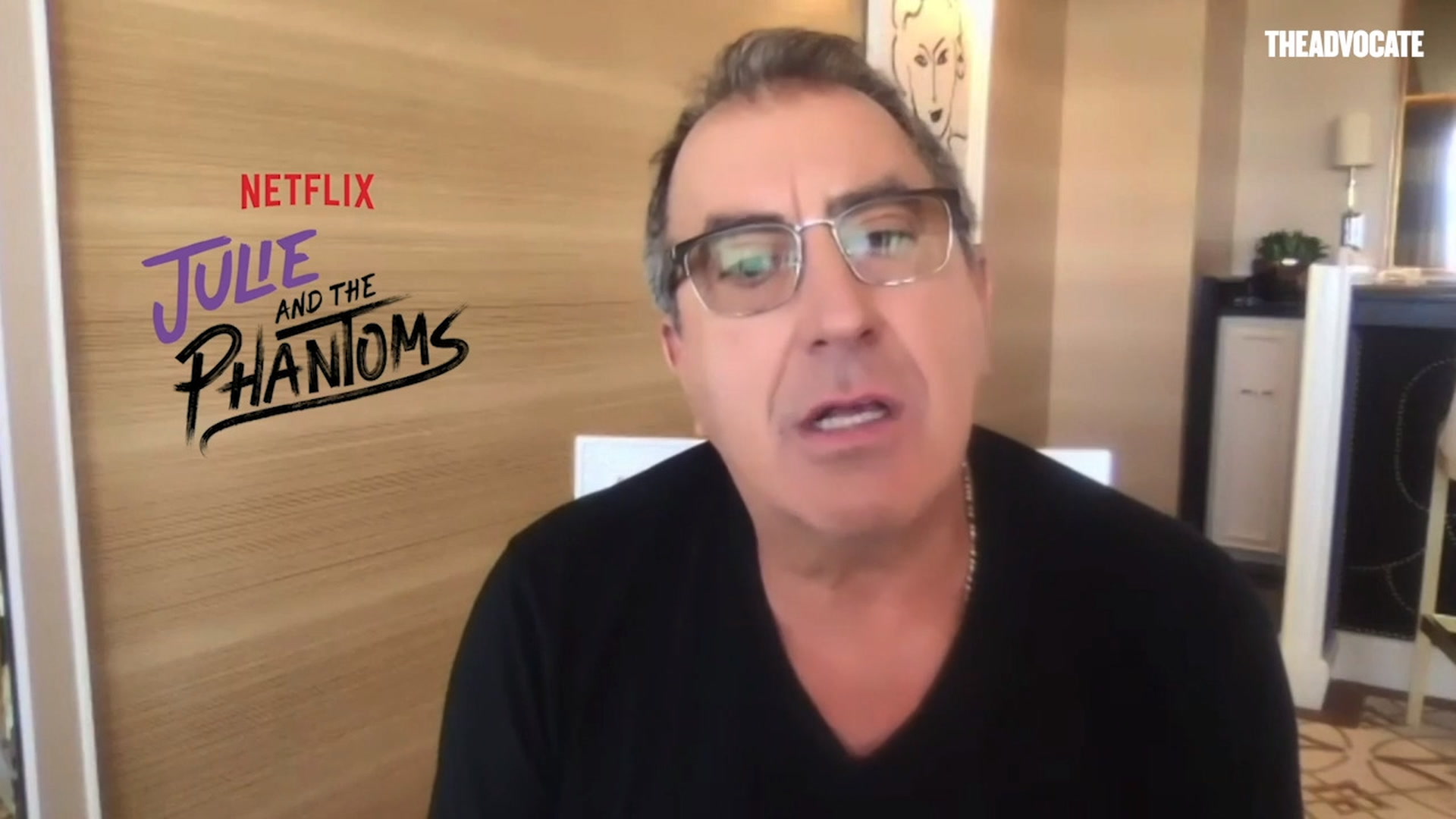
Reyes spoke about the diversity of the cast and what it means to her to be a part of the project.
"The diversity in the cast is so important. In a time like this when we seem to be divided because of our skin color and our race," Reyes said. "But being able to have these beautiful young women of color stand up and be proud of who they are and independent and so powerful and show their talents off through music of DJing and their friendship as well is so beautiful."
"The message with music and how it brings people together and how it helps people through certain things is amazing," she said.
Cheyenne Jackson and Booboo Stewart
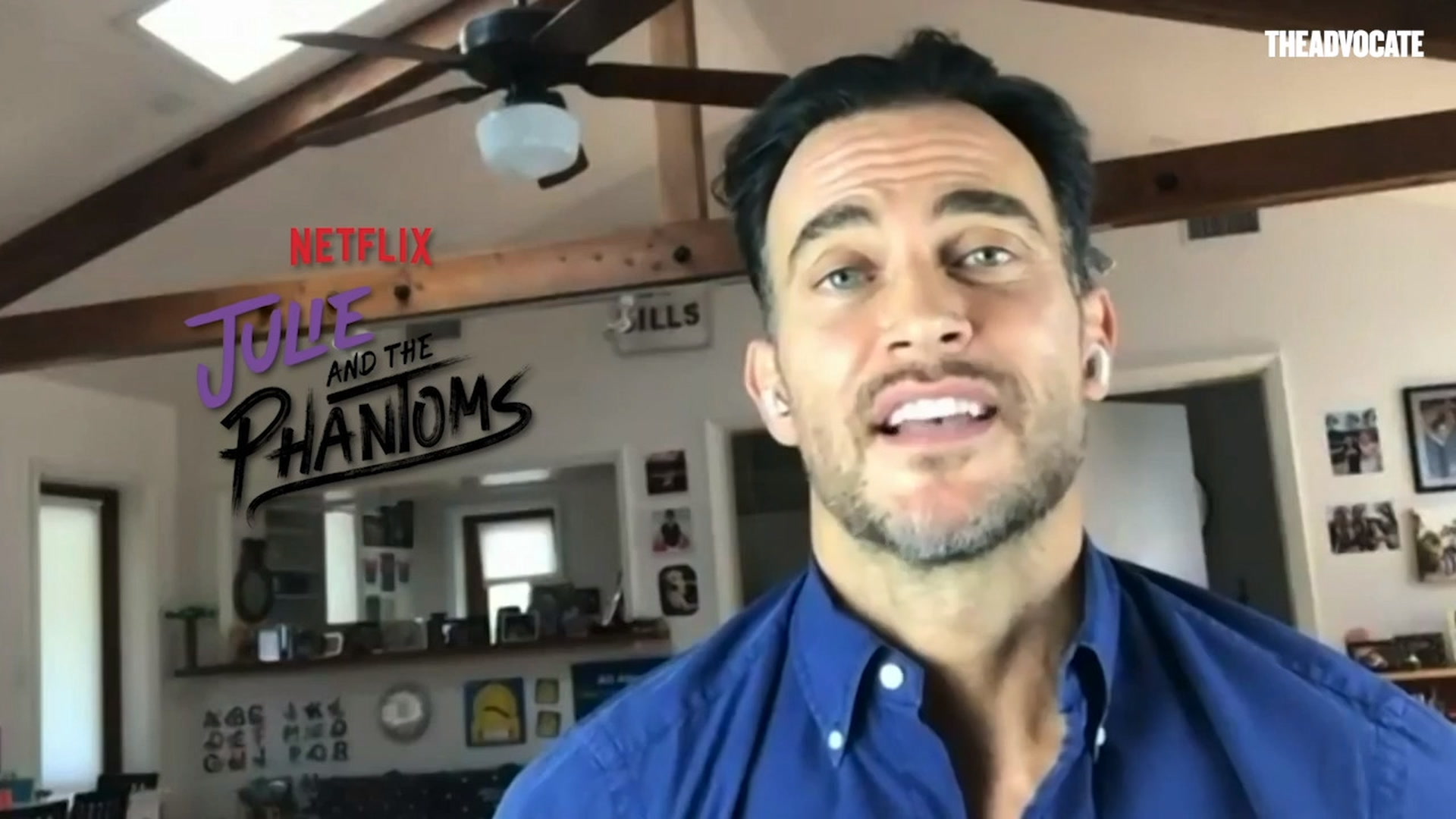
Out Broadway veteran and American Horror Story star Jackson said he thinks the reason Julie and the Phantoms is so special is that it reflects the world without a big fanfare about it.
"I love that Madison is the lead. It's groundbreaking in so many ways. And it's groundbreaking because it just is," he said. "It's not saying, 'Oh, look at her, she's Latina.' Or, 'Look at our gay storyline. See, we got gay guys.' It just is, and that is groundbreaking because of the way that Kenny handled it."
He also shared what it would have meant to him to see a story like Alex and Willie's when he was coming out.
"I'm 45. I came out when I was 19. It was a different life. It was a different world," Jackson said. "As a 15-year-old queer kid in Idaho, to be able to turn on the TV and see a representation of just two cute boys liking each other. That's it? Like, no pain, no angst. It would have been really powerful."
Stewart weighed in on playing one of the characters in the show's queer couple.
"To me, it's the world that we live in, and that's that. We are just putting what's normal on the screen. And I wouldn't want to do it in any other fashion," Stewart said.
"I heard that guys have been coming out to their parents because of the strength that they found in our story. That's the greatest thing that can happen. I'm so proud."
Owen Joyner, Jeremy Shada, Charlie Gillespie
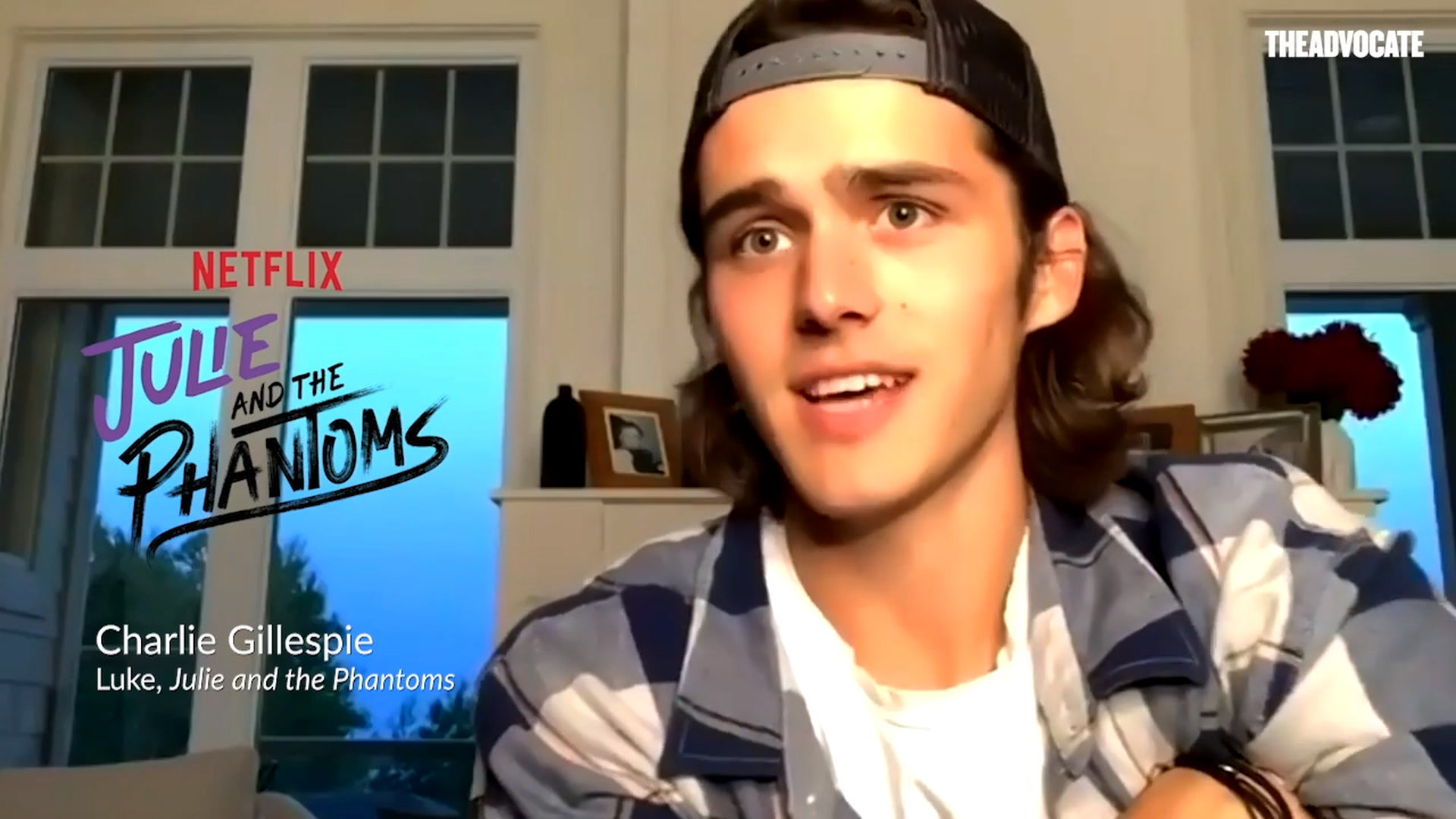
Joyner, who plays the gay character Alex, said that he's blown away by the response to the story.
"The feedback has been insane. We're all really overwhelmed with the amount of love it's getting, especially the relationship between Alex and Willie," Joyner said,.
He hadn't considered the response he might get when prepping for the role. His first goal was just to tell a good story.
"For people to come forward and say, 'This relationship has meant so much to me, or this character meant so much to me, or did this for me,' that's the biggest reward any actor could really have," Joyner said. "Even for children and family, for something to be so impactful for a younger generation, that's really cool to be a part of."






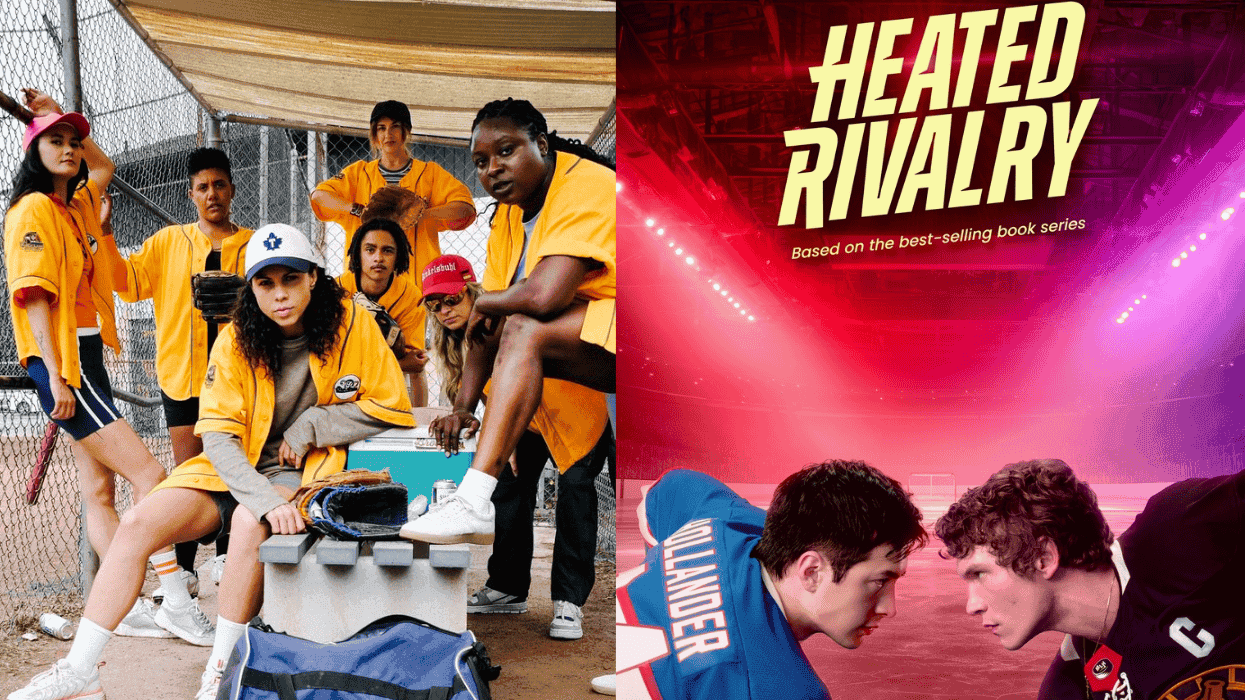



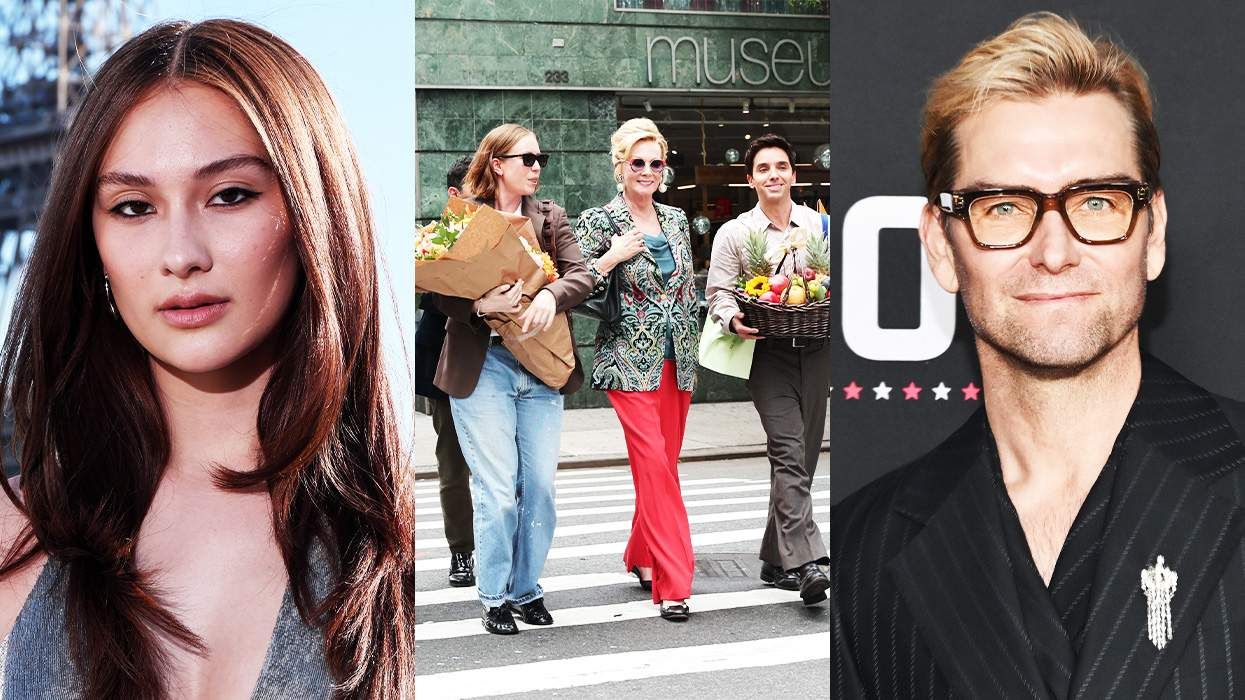





Charlie Kirk DID say stoning gay people was the 'perfect law' — and these other heinous quotes
These are some of his worst comments about LGBTQ+ people made by Charlie Kirk.